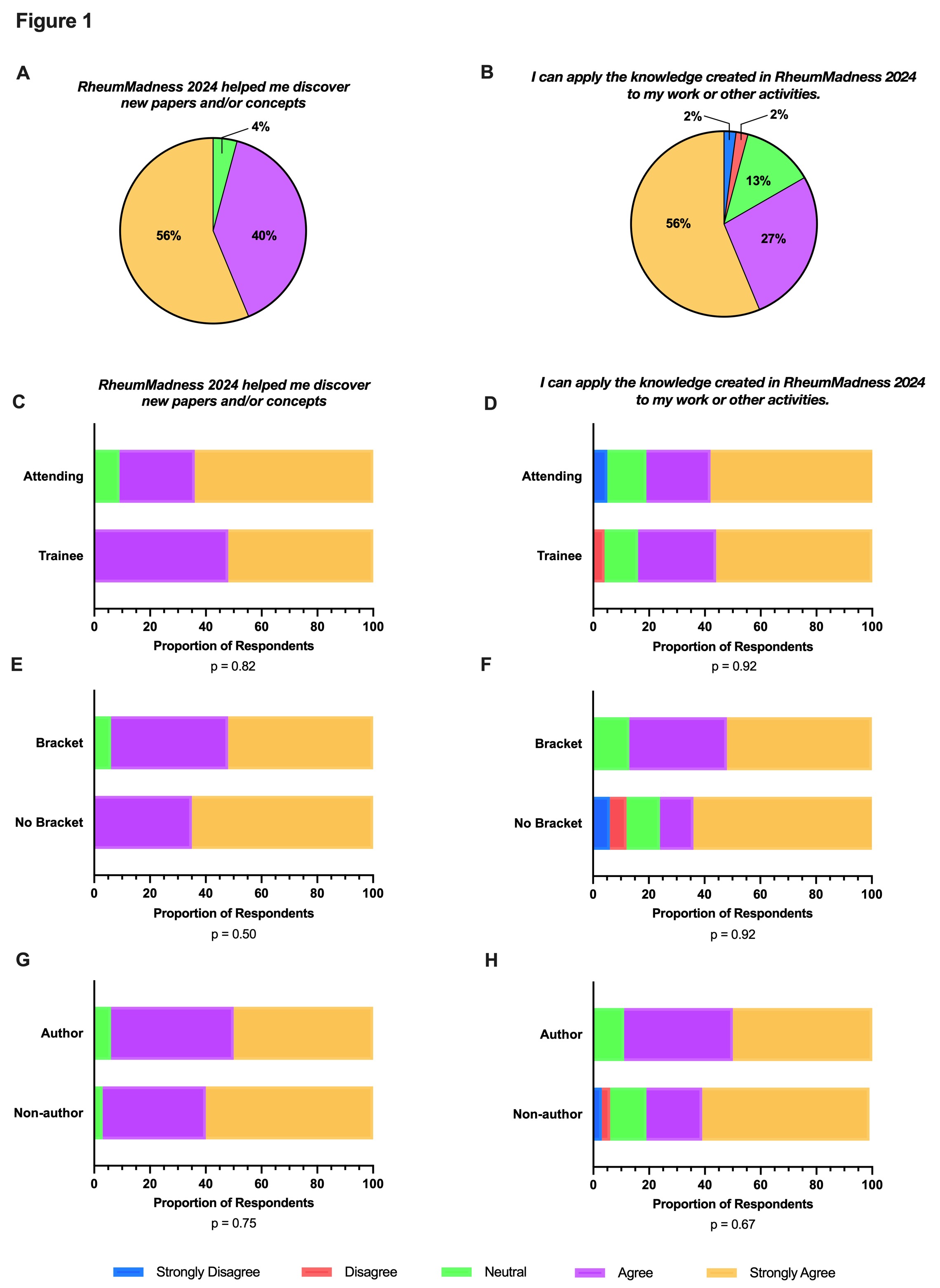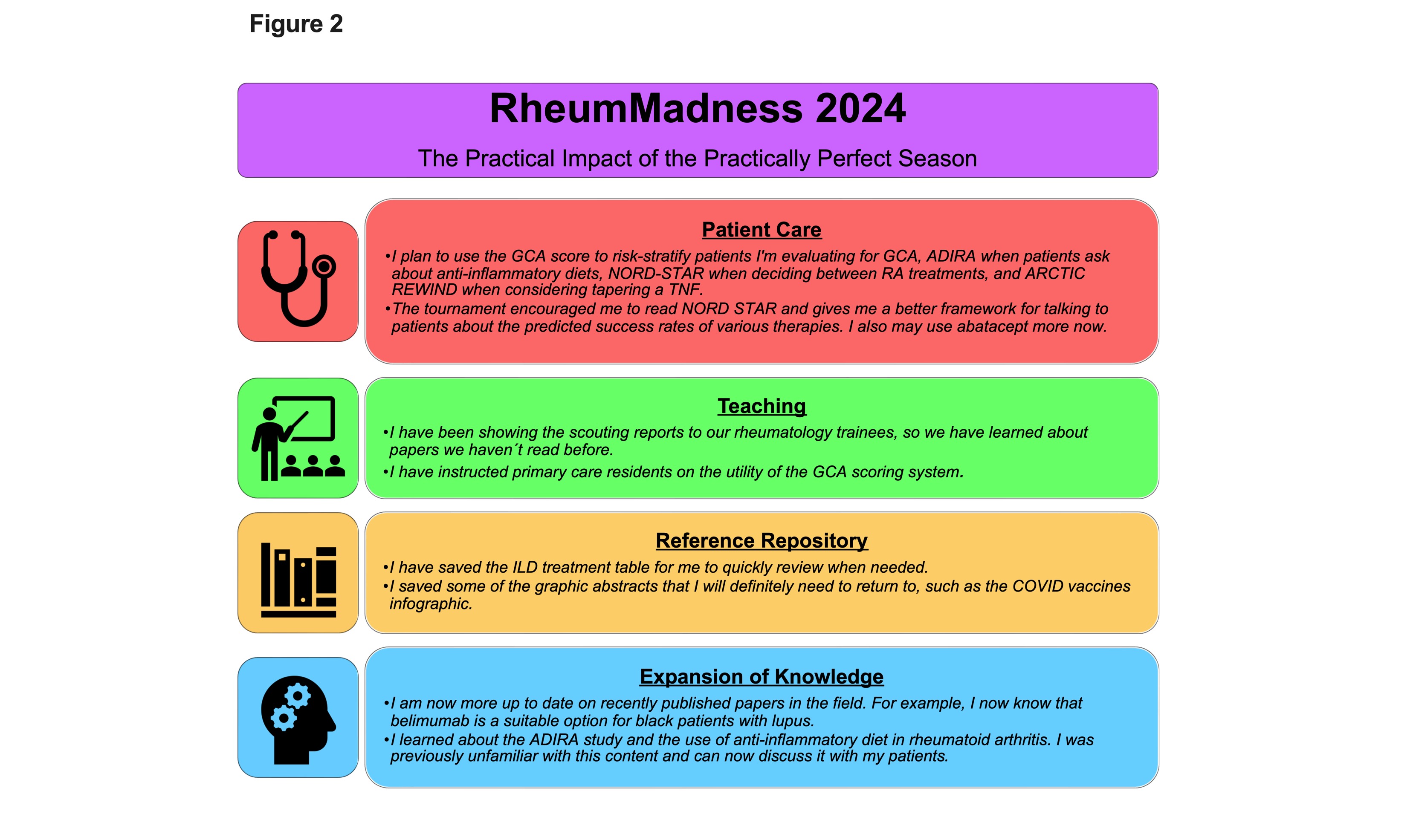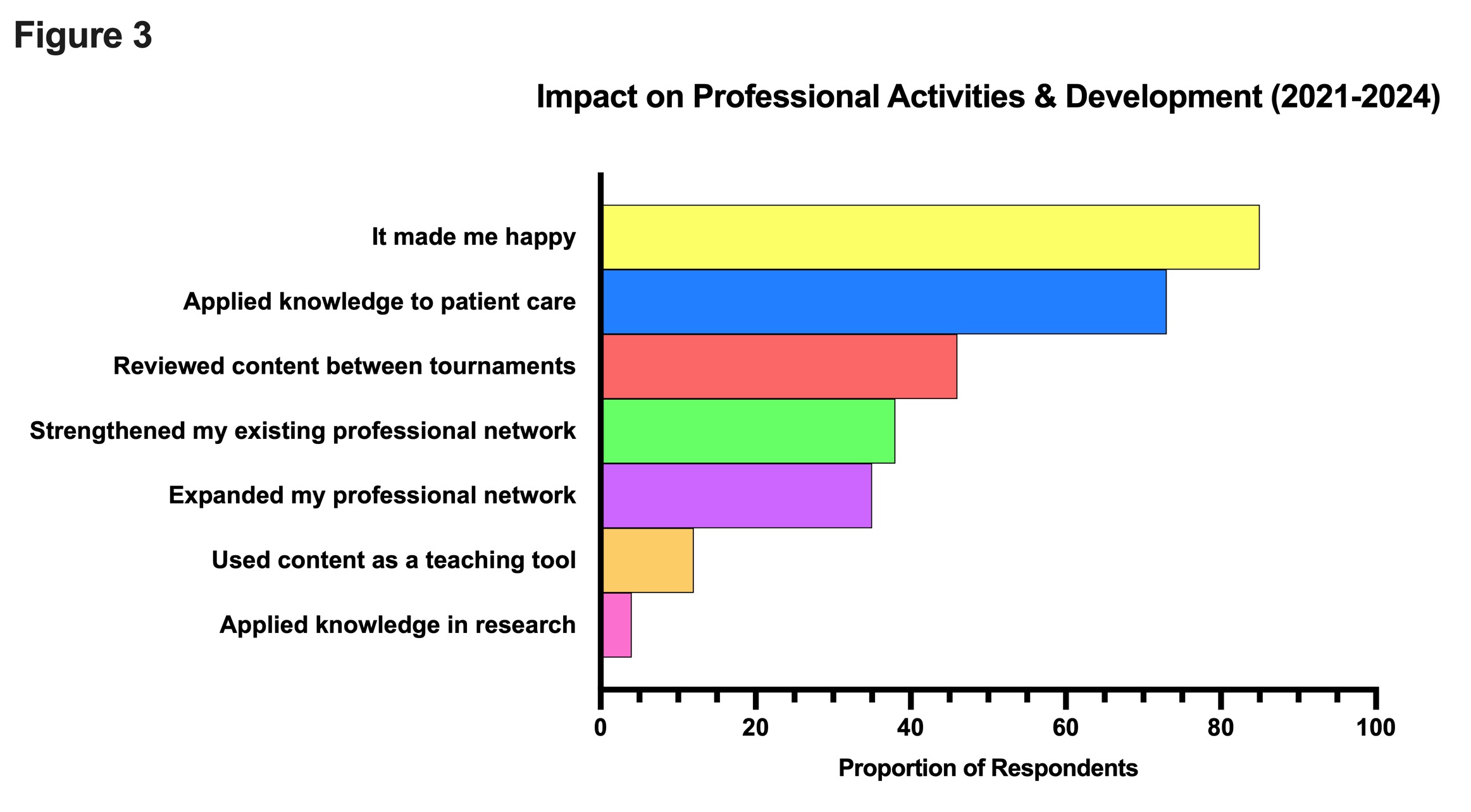Session Information
Session Type: Abstract Session
Session Time: 3:00PM-4:30PM
Background/Purpose: RheumMadness is an online tournament of competing rheumatology concepts. The 2024 season focused on the practical impact of published manuscripts; to mirror this, we assessed the practical impact of the tournament on patient care and professional satisfaction among RheumMadness participants.
Methods: RheumMadness 2024 consisted of 16 teams of competing concepts presented as scouting reports. New this year, scouting report authors created visual aids to enhance the practical utility of their reports. Participants submitted brackets predicting matchup outcomes that were compared against the choices of a Blue Ribbon Panel (BRP). Following the tournament, participants completed a survey (excluding 4 leaders who created the survey: EW, BL, GK, DL). Respondents who agreed or strongly agreed that they could apply knowledge from RheumMadness 2024 were asked to describe at least one piece of knowledge they planned to apply. A narrative qualitative analysis was performed on the responses to uncover themes. To explore the impact of RheumMadness over time, surveys sent to participants who had engaged in a prior tournament included questions about the impact of RheumMadness on their professional activities. Prism v10.2.3 was used to graph and analyze data using Mann-Whitney U-tests to compare subgroups.
Results: There were 115 tournament participants (bracket submitters or BRP members) in 2024. We received 48 complete survey responses. Of those, 39 submitted a bracket or reported serving on the BRP (response rate 34% among 115 tournament participants). The remaining survey respondents did not submit a bracket or serve on the BRP but still engaged with RheumMadness content; therefore, all 48 responses were analyzed. Respondents included 22 (46%) attendings, 20 (42%) fellows, 5 (10%) residents/advanced practice providers in-training/medical students, and 1 (2%) “other”. 40 (83%) of these respondents reviewed half or more of the scouting reports. Among all respondents, 47 (96%) agreed/strongly agreed that RheumMadness 2024 helped them discover new concepts, and 40 (83%) agreed/strongly agreed that they could apply knowledge to their work, with no significant differences in agreement among attendings vs trainees, bracket submitters vs non-submitters, or scouting report authors vs non-authors (Figure 1). Most respondents agreed/strongly agreed that the visual aids helped them better understand (88%) and apply (78%) tournament concepts. Free-text responses described the application of knowledge in four areas: patient care, teaching, creation of a repository of useful references, and expansion of knowledge (Figure 2). Of the 26 respondents who had participated in a prior tournament, 22 (85%) indicated that RheumMadness made them happy, 19 (73%) reported applying knowledge to patient care, 12 (46%) reviewed content between tournaments, and 10 (38%) reported that participation strengthened their professional network (Figure 3).
Conclusion: RheumMadness has a practical impact by spreading knowledge that is applied to patient care, providing a useful repository of resources, strengthening professional networks, and increasing happiness.
To cite this abstract in AMA style:
Wilson E, Lueck B, Usmani S, Arneson L, Balbach M, Phillips L, Kellogg J, Bair C, Macklin M, Qaiser I, Rodriguez A, Garren A, Couette N, Briones M, Sparks M, Criscione-Schreiber L, Katz G, Leverenz D. RheumMadness 2024: The Practical Impact of the Practically Perfect Season [abstract]. Arthritis Rheumatol. 2024; 76 (suppl 9). https://acrabstracts.org/abstract/rheummadness-2024-the-practical-impact-of-the-practically-perfect-season/. Accessed .« Back to ACR Convergence 2024
ACR Meeting Abstracts - https://acrabstracts.org/abstract/rheummadness-2024-the-practical-impact-of-the-practically-perfect-season/



